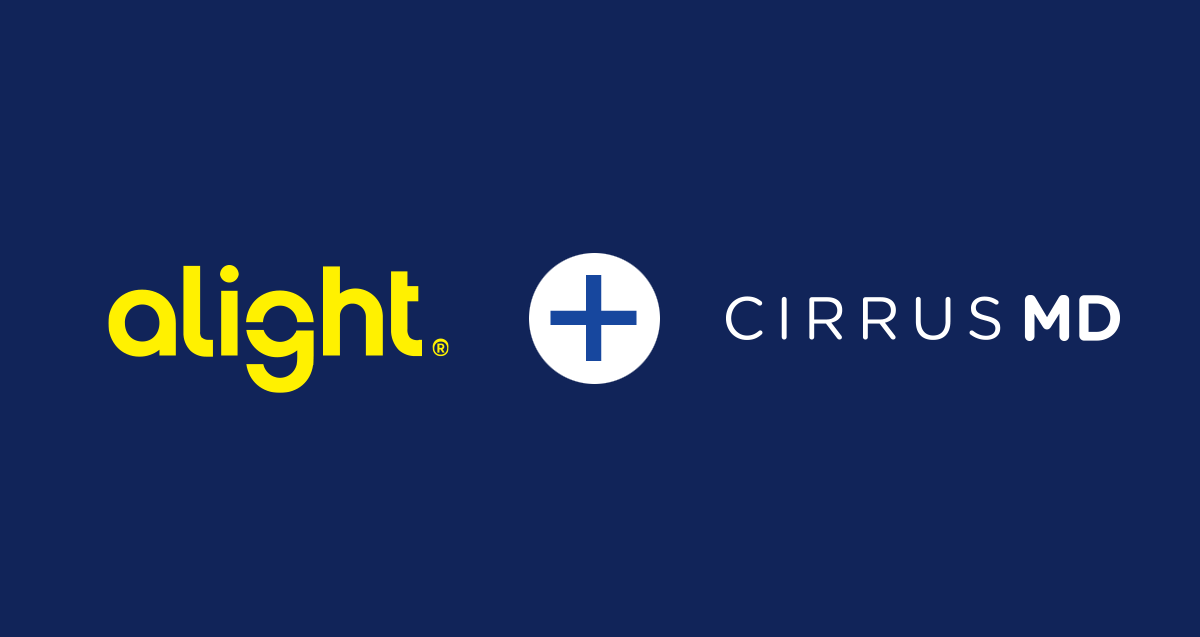Q: It’s National Minority Health Month, a month dedicated to improving health in ethnic minority communities. What should we be thinking about?
A: Every April, the Health and Human Services - Office of Minority Health (OMH) observes National Minority Health Month, highlighting the importance of improving the health of racial and ethnic minority communities and reducing health disparities.
It’s a great opportunity to look at how we can improve health outcomes by providing more culturally equitable healthcare services, which can help patients create healthier outcomes for themselves.
For CirrusMD, creating more equitable care has been a long time focus of our company, solution and provider network. We continue to find ways to make accessing healthcare as easy and equitable as possible.
Q: What are some of the health issues faced by people in minority groups?
A: While the risks may change slightly from group to group, the overarching issue is the same: research shows that members of minority groups have higher rates of morbidity and mortality than white Americans for most indicators of physical health.
A few of the most likely reasons stem from things we can address, like access to screenings, language barriers, and convenient access to qualified care professionals.
CirrusMD takes a physician-first approach to virtual primary care, providing access to patients located anywhere in the U.S. So your employees / plan members can begin chatting with a doctor in under a minute, asking questions about any kind of health related topics, from acute issues to mental health concerns or even, when and where to get health screenings.
Why is this so important? A post from the Mayo clinic says “the overall cancer mortality rate is higher for Black people than for any other race. Black women are 40% more likely to die of breast cancer than white women, and prostate cancer deaths in Black men are more than double of other races.”
Today, we have the tools in place to do better and start removing the inequities in care.
Q: Why is it so important to stay up-to-date with screenings and vaccinations?
A: During Minority Health Month, it's crucial to emphasize the significance of screenings and vaccinations in maintaining a healthier life. Screenings play a vital role in early detection of health issues, often before they become more serious, while vaccinations are essential in preventing many avoidable illnesses.
At CirrusMD, our doctors are dedicated to helping patients identify their risk factors for conditions such as high cholesterol, which can increase the likelihood of heart disease, stroke, and other health problems, as well as diabetes, which raises the risk of heart disease, stroke, high blood pressure, and other issues. Our physicians assist patients in assessing their risks and can order necessary lab tests, reviewing the results with patients and providing guidance on additional steps that may be needed.
It's important to note that minority communities have lower overall rates of vaccinations for illnesses like influenza and Covid-19. For instance, Black adults are less likely than non-Hispanic White adults to have received a flu vaccine in the past year or to have ever received the pneumonia vaccine. These lower vaccination rates contribute to higher instances of diseases among both adults and children in minority communities. At CirrusMD, our physicians are committed to helping patients stay up-to-date with vaccinations and use current guidelines to help ensure health and well-being.
Q: We’ve talked a lot about Social Determinants of Health in recent years. Can virtual care be one of the ways we improve current SDoH factors?
A: During National Minority Health Month and every month, it's crucial to recognize and address the differences in Social Determinants of Health (SDOH) in order to make progress towards achieving health equity, where everyone has the opportunity to attain their optimal level of health. Research has shown that SDOH have a greater impact on health outcomes than genetic factors or access to healthcare services.
As the Vice President of Provider Network at CirrusMD, part of my role is to help our doctors address health disparities in minority communities through a comprehensive approach that includes ongoing health management, wellness guidance, and specialized care for chronic diseases.
We can also help patients make lifestyle improvements, with programs supporting smoking cessation, weight management and nutrition, and assistance with mental health issues. Our goal is to provide holistic care that considers the unique SDOH factors affecting individuals in minority communities, and to promote health and well-being for all individuals, regardless of their background or circumstances.
Q: How do CirrusMD physicians address a diverse range of patient health concerns?
A: CirrusMD doctors can address the needs of Spanish-first speakers with a real-time translation tool that facilitates seamless communication by translating Spanish to English and back. This ensures that language is not a barrier to receiving quality healthcare.
Additionally, CirrusMD provides convenient care options that save patients time by eliminating the need for many in-person appointments. This allows patients to seek medical advice and assistance from their own homes or even their place of work. This can help patients avoid missing work or having to find additional childcare, for example.
And we appreciate the high cost of healthcare that most of us face. Those high costs can actually change the decisions people make about care. For example, workers with High Deductible Health Plans (HDHPs), often popular among lower paid workers, may not feel like they can afford to seek in-person care when they’re ill. But many CirrusMD employer clients provide access to our provider network at no charge to their employees, creating an important and cost effective digital front door for care.
Q: How can employers support minority team members in managing their health during National Minority Health Month?
A: Employers play a crucial role in promoting the health and well-being of their minority employees. A few steps they can take include:
- Health fairs and screenings: Employers can organize health fairs and provide access to health screenings, such as blood pressure checks, cholesterol screenings, and diabetes screenings. These initiatives can raise awareness about health risks, provide early detection of health issues, and encourage employees to take proactive measures to manage their health.
- Time off for participation in wellness programs: Employers can offer flexible work policies that allow employees to take time off for participation in wellness programs, such as exercise classes, mental health workshops, or other health-promoting activities. This can help minority employees prioritize their health and well-being, and create a supportive work environment that values employee wellness.
- Support for non-English speakers: Employers can provide resources and support for employees who don’t speak English as their first language, helping to ensure that language is not a barrier to accessing healthcare. This can help minority employees feel included and supported in their healthcare journey.
By implementing wellness initiatives — and offering effective healthcare benefits including a virtual care provider built around equitable care delivery — employers can demonstrate their commitment to promoting health equity and supporting the health and well-being of their minority employees during National Minority Health Month and beyond.







